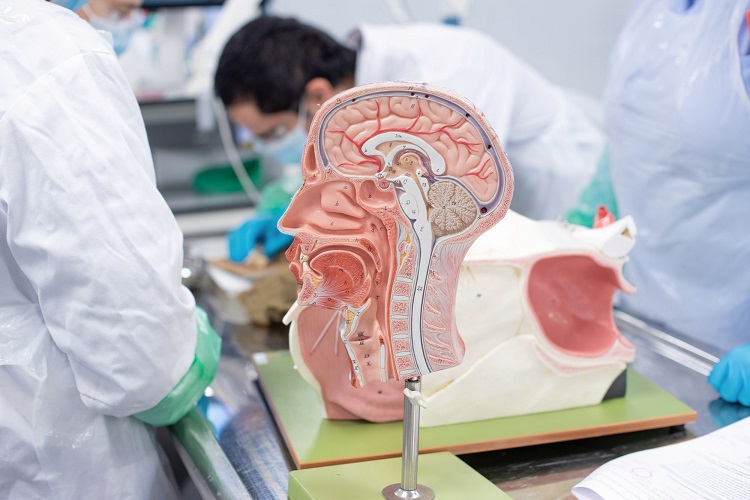St Andrews welcomes approval of medicine degree legislation

The University of St Andrews has welcomed the approval of new legislation which removes the prohibition that prevents Scotland’s oldest University from awarding degrees in Medicine and Dentistry.
The Scottish Parliament (10 March 2021) unanimously (122 for and none against) passed the University of St Andrews (Degrees in Medicine and Dentistry) Bill, which brings St Andrews in line with the other medical schools in Scotland, and allows the University to award the ScotGEM Primary Medical Qualification jointly with the University of Dundee.
St Andrews Principal Professor Sally Mapstone said: “We are grateful to members of the Scottish Parliament from across the political spectrum who have supported this important piece of legislation, which will now allow us to operate on an equal basis with other universities in relation to any current or future developments or commissions for a new medical or dentistry degree provider.
“The University of St Andrews was the only academic institution in the UK to be legally barred from awarding PMQs. The legal prohibition was anomalous and so it was appropriate to remove it.
“I know our ScotGEM students, who enrolled to their programme of study with the clear expectation that their degree would be jointly awarded by the University of St Andrews and the University of Dundee, will be delighted at this decision.
“It strengthens medical education in Scotland, and through continued close working with our partners will support the national effort to improve health outcomes across the country.”
The ScotGEM programme run jointly with the University of Dundee is designed to develop doctors interested in a career as a generalist practitioner within NHS Scotland. ScotGEM offers a unique and innovative four-year graduate entry medical programme tailored to meet the contemporary and future needs of the NHS in Scotland and focuses on rural medicine and healthcare improvement.
The programme capitalises on the existing strengths of medical teaching in the Universities of St Andrews and Dundee in collaboration with NHS Fife, NHS Tayside, NHS Highland, NHS Dumfries and Galloway, and the University of the Highlands and Islands.
The students are currently placed in 72 GP practices across Scotland, including Orkney, Thurso, Tiree, Campbeltown and Newton Stewart, and had themselves appealed to the Scottish Parliament to remove the prohibition which prevented St Andrews awarding degrees in medicine.
During its passage through the Scottish Parliament the Bill attracted wide support from across the chamber.
The Cabinet Secretary for Health and Sport Jeane Freeman said: “The bill’s purpose is to repeal an archaic, unfair and, arguably, anticompetitive prohibition that prevents the University of St Andrews from awarding medicine and dentistry degrees.”
North East Fife MSP Willie Rennie said: “With such a long and prestigious heritage, it is only right that the University of St Andrews should be able to move forward. I argue that it should be able to operate on an equal basis with other universities in relation to any current or future developments, or commissions, for a new medicine or dentistry degree provider. This change would support the development of the medical workforce in Scotland and give students a choice of universities.”
Mid Scotland and Fife Labour MSP Alex Rowley said: “Given that the bill will allow the University of St Andrews to play a key role in the ScotGEM programme, which is aimed at increasing careers in general practice and has a focus on rural medicine and healthcare improvements, I believe that it is a welcome move for Scotland.”
Mid Scotland and Fife Conservative MSP Liz Smith said: “The change will make for much greater fairness and will ensure that there will be a level playing field on which the University of St Andrews can participate equally with other PMQ-awarding universities.”
Category University news